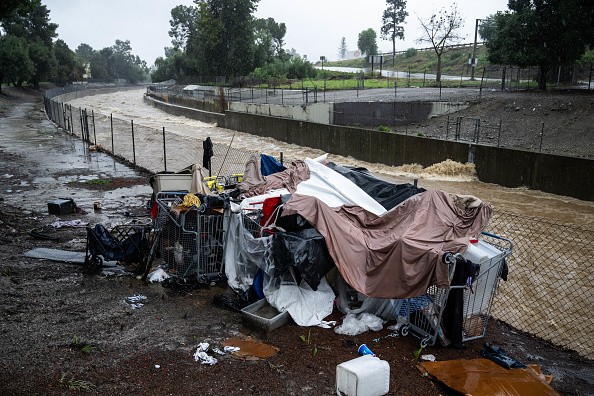Millions of Americans are being squeezed by the economy and are facing uncertainty due to the unaffordable rent increases permeating the market, fueled by inflation and a shortage of affordable housing, as well as the end of pandemic relief.
Data from the Harvard Joint Center for Housing Studies, which was released in January, showed a record high of 22.4 million renters, which accounts for half of the nation's renters, were spending more than 30% of their income on rent.
The number of affordable units, homes with rents below $600, dropped to 7.2 million, two million lower than the prior decade.
This resulted in a startling rise in eviction filings and a record number of people facing impending homelessness.
"It's one of the worst years we've ever seen," said Whitney Airgood-Obrycki, a senior research associate at the Harvard center. Obrycki further stated that the level of cost-burdened households in 2022 had not been this high since the 2008 recession, which saw 10 million Americans lose their homes to foreclosure.
Federal lawmakers across the country have paid lip service to the idea of making housing a priority in 2024, including proposals to enact eviction protections, cap annual rent increases, institute new zoning laws, and spending tens of billions of dollars on more housing.

Who Does This Effect The Most?
The hardest hit Americans are those making less than $30,000 annual.
"So you can certainly imagine the kinds of tradeoffs that have to happen," Airgood-Obrycki said. "Cost-burden renters are spending less on things like food and health care and retirement. So, there are significant implications for the long-term well-being of these households."
Furthermore, a study conducted at Princeton University's Eviction Lab says 40% of those facing eviction each year are children. The study also showed that housing problems and eviction greatly affect a child's mental health and development.
"We can see that things really fall off for children that experience eviction," Graetz said.
Associated Press reports that Congressional leaders are working on a bill that could expand federal programs that award tax credits to housing developers who agree to set aside some units for low-income tenants.
"A larger commitment from the federal government is required," said Chris Herbert, managing director of the Harvard center. "Only then will the nation finally make a meaningful dent in the housing affordability crisis making life so difficult for millions of people."
© 2026 HNGN, All rights reserved. Do not reproduce without permission.








